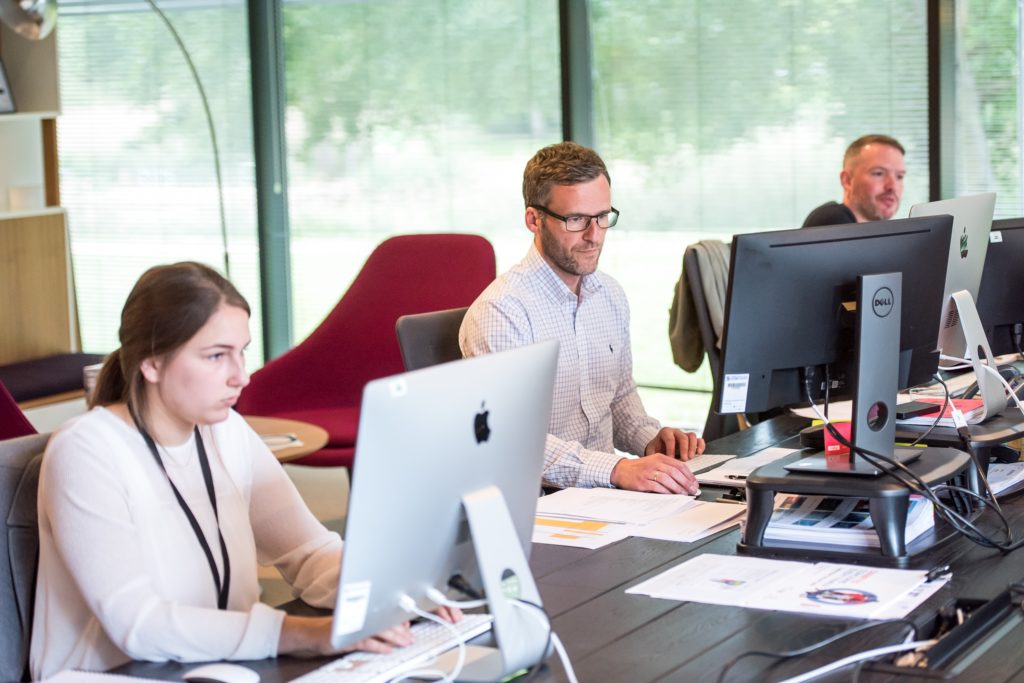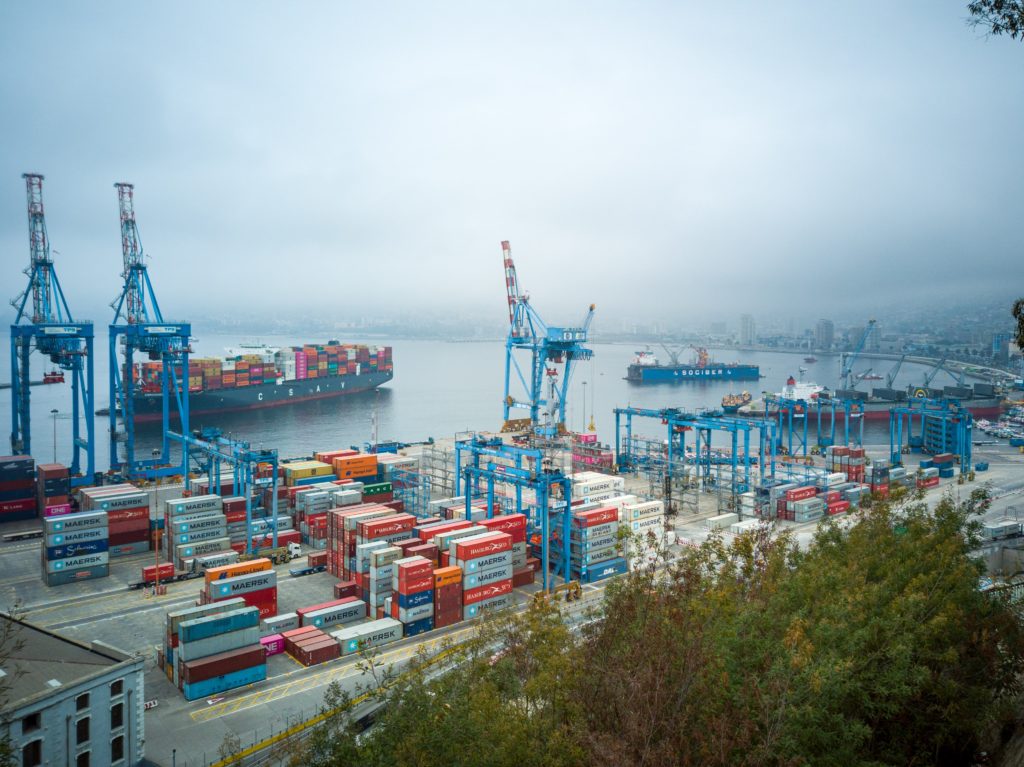
Alice Pugh examines some of the key trends impacting businesses and their operations in the West Midlands. Many of these trends started before the pandemic, but Covid-19 has accelerated them.
This article is part of a larger project looking at Megatrends in the West Midlands. Megatrends are major movements or patterns or trends that are having a transformative impact on business, economy, society, cultures and personal lives. The project examines some of these megatrends in a series of provocations, podcasts and a report.
View the full provocation.
Introduction
Covid-19 has accelerated a number of trends, and some businesses adapted and adjusted their business models and operations quickly, in order to deal with the new demand and disruptions in supply chains.
This blog focuses on five key trends and the rationale for intervention:
- The environmental sustainability of firms has become a necessity for the longevity of a firm’s life. If businesses across the world fail to become more environmentally friendly, then eventually climate change disruptions and the loss of finite resources, will lead to the collapse of the majority of businesses across the world by 2060.
- Work environments are changing – in recent years there has been a shift towards more people in professional services starting to work from home. This trend has been accelerated following workplace restrictions after the spread of Covid-19. Additionally, growing online sales are changing the face of retail and manufacturing services across the world.
- Digitisation and automation have significantly increased. Firms are increasingly vulnerable to advanced cyber-attacks. In 2020 Airmic reported that the biggest risk to business operations was cyber events.
- Consumer tastes are changing dramatically. This reflects an ageing population, rapid growth in sustainable purchasing, and the growing importance of the retail experience.
- Logistics and supply chains are set to undergo rapid change – with increased reshoring – as Brexit creates challenges for old logistics and supply chains, along with changing consumer tastes.
Environmental sustainability
If globally, businesses, governments, institutions, and individuals fail to combat climate change then the effects will increasingly get worse, in both frequency and scale. Climate change is already severely impacting supply and production processes all over the world. This may be climate change disasters such as floods or wildfires, causing disruption, or due to the increasing scarcity of infinite resources.
Consumers are also driving the trend towards greater commitment from firms to produce and source environmentally sustainable goals. Consumers are not only demanding more sustainability in the products they buy off the shelf and along the entire supply chain. Businesses across the world are having to change their business operations, in order to capture this growing demand or risk losing custom, especially amongst GenZ and Millennials.
The topic of sustainability is relevant to business districts. Local governments and regulators are looking to impose stricter conditions and environmental controls. In the UK for example, the Minimum Energy Efficiency Standard is being used to implement higher efficiency standards for commercial buildings. It is also an important factor when attracting young professionals to business districts.
What works: Adapting business models to be authentic and transparent about a business’s intention as to their sustainability goals is extremely beneficial for retaining and capturing consumer demand. Researchers at Henley Business School found that the mere act of corporate carbon emissions disclosures improved share price performance for UK companies.
Committing to the UN’s Sustainable Development Goals (SDGs) within business strategies would help firms, governments, institutions, and cities create a well-constructed environment strategy, as well as demonstrate to the environmentally conscious public how they are committing to environmental sustainability.
Changing work environments

88.2% of employees who worked at home during lockdown would like to continue working at home in some capacity in the future. Before the lockdown, strong city centres with many higher-skilled office jobs also had the fewest vacant properties on the high street. Cities like Birmingham, where offices take up almost half of the commercial city centre floor space, had stronger economies, as well as a greater number of premium stores. City centre workers are more likely to be highly skilled and therefore, have a larger disposable income, that they are likely to spend on the amenities surrounding their workplace.
Increasing online sales is changing working environments for retail stores. Retail stores are having to compete with fast, easy, and convenient services online. In the future, there may be fewer physical stores in city centers, and more businesses will have a greater online presence. Hence, businesses will have to change their operations and have a greater number of distribution hubs and fewer physical stores.
An ageing population will also impact the working environment as the UK population increases there will be a larger growing dependent population. The two main drivers here are rising life expectancy and declining fertility rates. It is like the Government will increase the retirement age, in order to ease the public spending burdens such as pensions. By 2030 Britain will join 13 other countries which have ‘super-ageing populations’, with more than one in five citizens over 65. Enabling older people to contribute to the workforce is important.
What works: One way for businesses to adapt to the new working environments where some employees prefer to work at home is to offer ‘Flexible working’. Research shows that flexible workers have a higher level of job satisfaction, and commitment and are more likely to increase discretionary effort compared to those who do not work flexibly. Flexible working can also reduce absence rates and allows employees to manage disability and long-term health conditions, as well as support their mental health and stress. It can also provide employees with the option of either working from home or the office, which will be easier for employees to adapt to following the end of covid-19 lockdowns.
For businesses across the world, the importance of eCommerce online sales has become vitally important to growth and success in a globalised world. There have been numerous businesses for which the internet become a lifeline for the survival of their business under the pandemic lockdown conditions. One way in which retail stores can build an online presence relatively easily is through online marketplaces, which retailers can sell through in order to capture as large an audience as possible. For instance, many food fast retailers have joined marketing platforms such as Uber eats or Just Eat, or small SMEs and sole traders have started trading on platforms, such as eBay and Etsy.
A recent survey of 500 UK employers found only one in five are actively discussing the ageing workforce as part of their business strategy. With nearly one in four saying their organization was unprepared for this demographic shift. In order to develop effective health and wellbeing strategies, businesses should first ensure they fully understand the structure of their workforce. Businesses should utilize sources of information to help them tailor their health and wellbeing strategies.
Digitalisation and Automation
If businesses do not build a robust cyber-security system to guard against cyber-attacks, then they will be vulnerable to external enemy attacks in the form of ransomware or other kinds of malware that can cripple or even destroy the business of entire companies. As technology gets more advanced and cheaper in the future it will be easier for hackers to attempt cyber-attacks. City centres are increasingly facing attacks, the inherent interconnectivity and transparency of smart cities such as Birmingham make them more vulnerable to cyber-attacks.
The next wave of disruptive technologies, which are rapidly coming of age, are driving this change. They include AI, augmented reality (AR), virtual reality (VR), sensors, and blockchain. These breakthroughs are in turn generating new products and services, such as AVs, drones, robots, and wearables. AI already assists humans with the collating of large data sets that humans would struggle to process. Human augmentation technologies will soon assume even more agency as they drive cars, automate jobs and make retail purchases. In doing so, they will blur the line between humans and machines, realigning societal norms and challenging entrenched perceptions of ourselves.

What works: The best-proven way of protecting against cyber-attacks is taking an active approach to protecting business and government institutes. Businesses will need to invest in systems for backing up their data, strong antivirus software, tracking systems, password protection, and training staff in how to report and detect malware or phishing attacks. Currently, only 32% of businesses in the UK are insured against cyber-attacks and only 50% of businesses have conducted an internal audit into cyber-security in the last 12 months. If firms continue to undervalue the security risks that cyber-attacks pose then businesses will fall behind and grow more and more vulnerable to malicious attacks.
Consumer Tastes
Bricks-and-mortar stores are quickly losing customs to a rapidly growing online market. They need to compete by creating an experience – preferably a personalized one. A blurring between leisure and retail in brick-and-mortar stores has led to the creation of destination shopping that provides an experience, so enticing consumers away from the convenience of online retail. It is also partially driven by the ‘Instagram generation’ who want to be able to document their experiences as well. For instance, Primark in the centre of Birmingham has had a complete revamp and now provides additional services that you can only get in person, such as a beauty studio, as well as creating additional experiences such as the Disney-themed café. High Street retailers who fail to innovate their stores and create an immersive customer experience will likely see their footfall decreasing in the future. Covid-19 has also accelerated the desire for experiences, as many people over the last year are beginning to place more value on experiences than goods, having been in lockdown conditions and social distancing for a prolonged period of time.
Businesses and governments continue to underestimate the power of older people, especially as they are more likely to spend and hold a greater amount of wealth within the UK: one in five baby boomers are millionaires. They also make up around 23% of the UK’s population, even though only 5% of advertising is aimed at them. Businesses need to cater more to the demands of this growing group or face missing a significant opportunity.
What works: In order to keep customers returning to brick-and-mortar stores, retailers need to offer customers something valuable and relevant that isn’t available online. For instance, the House of Vans store in London has a skate park in its basement allowing customers to test products and socialize with friends; something that could never be offered by an online retailer. Many consumers view the high street largely as a destination: to meet friends and socialise, as many products they wish to buy are online. It’s about creating a unique and relevant experience in-store, that customers online cannot provide. The top thriving businesses in recent years have been convenience stores, coffee shops, beauty salons, nail salons, and restaurants and bars. Most store closures have been amongst confectionery and news, fashion and clothing, music/games/DVDs, shoe shops, and card and gift shops. The thriving shops offer experiences that cannot be obtained online.
Baby boomers have contrasting tastes to their younger counterparts. Whilst 6 in 10 millennials agreed that they would choose a brand because it supports a cause they believe in, only 1 in 3 baby boomers said the same. Businesses need to ensure that they adapt their business models to the consumers’ needs and tastes of baby boomers as well as other generations. Covid-19 may have influenced the speed at which the older generation has adopted technology, especially in terms of online shopping for weekly grocery shops and retail items; in order to minimise their exposure to the pandemic. Brand trust, convenience, and personalisation of services are key to attracting older consumers. Stores can help deliver a highly personalised service through the use of technology. However, they need to train their staff on how to communicate with boomers in the store. Convenience is also a major driver of consumption amongst baby boomers: businesses need to consider this when designing websites and stores in order to create a smoother shopping journey. As older consumers are less trusting of goods and services bought online, they are increasingly seeking assurances from a range of places such as family and friends’ referrals and ratings by independent bodies.
Logistics and supply chains

There has been a reshoring trend, as businesses have realised how fragile supply chains can be to external shocks such as Covid-19 and Brexit. In the future there may be increasing reshoring as it will allow for more flexible adjustment to changing demand, mitigating firms’ risks in the event of pandemics or other external shocks.
Many customers have changed their tastes and are now willing to pay higher prices to ensure that the goods and services they purchase are sustainably grown, sourced, and have a low carbon footprint.
Glocalisation will likely increase as it has been recognised that long supply chains are extremely vulnerable to external shocks. The result will be shorter value chains, where the physical flow is organised relatively locally, compared to historic long physical flows which are easily subject to shocks.
What works: In order to deal with future shocks companies should consider dual sourcing: sourcing some supplies within or near the local market and then the rest further afield. This will mitigate the risk of being exposed to these sorts of shocks again. Furthermore, now is the perfect time to restore as there is the demand for sustainable low carbon goods, which can be achieved through using local supply chains. Whilst this may be an expensive venture, some of the cost can be passed onto the consumer as many consumers are now willing to higher prices for goods that are more sustainable. It will also sure-up supply chains, as shorter chains are less vulnerable to external shocks, and diversifying supply sources will also enable firms to protect against shocks that occur solely within the UK, as they would still have the overseas supply.
This article is part of a larger project looking at Megatrends in the West Midlands. Megatrends are major movements or patterns or trends that are having a transformative impact on business, economy, society, cultures and personal lives. The project examines some of these megatrends in a series of provocations, podcasts and a report.
This blog was written by Alice Pugh, Policy and Data Analyst at City-REDI / WMREDI, University of Birmingham.
Disclaimer:
The views expressed in this analysis post are those of the authors and not necessarily those of City-REDI / WMREDI or the University of Birmingham.
